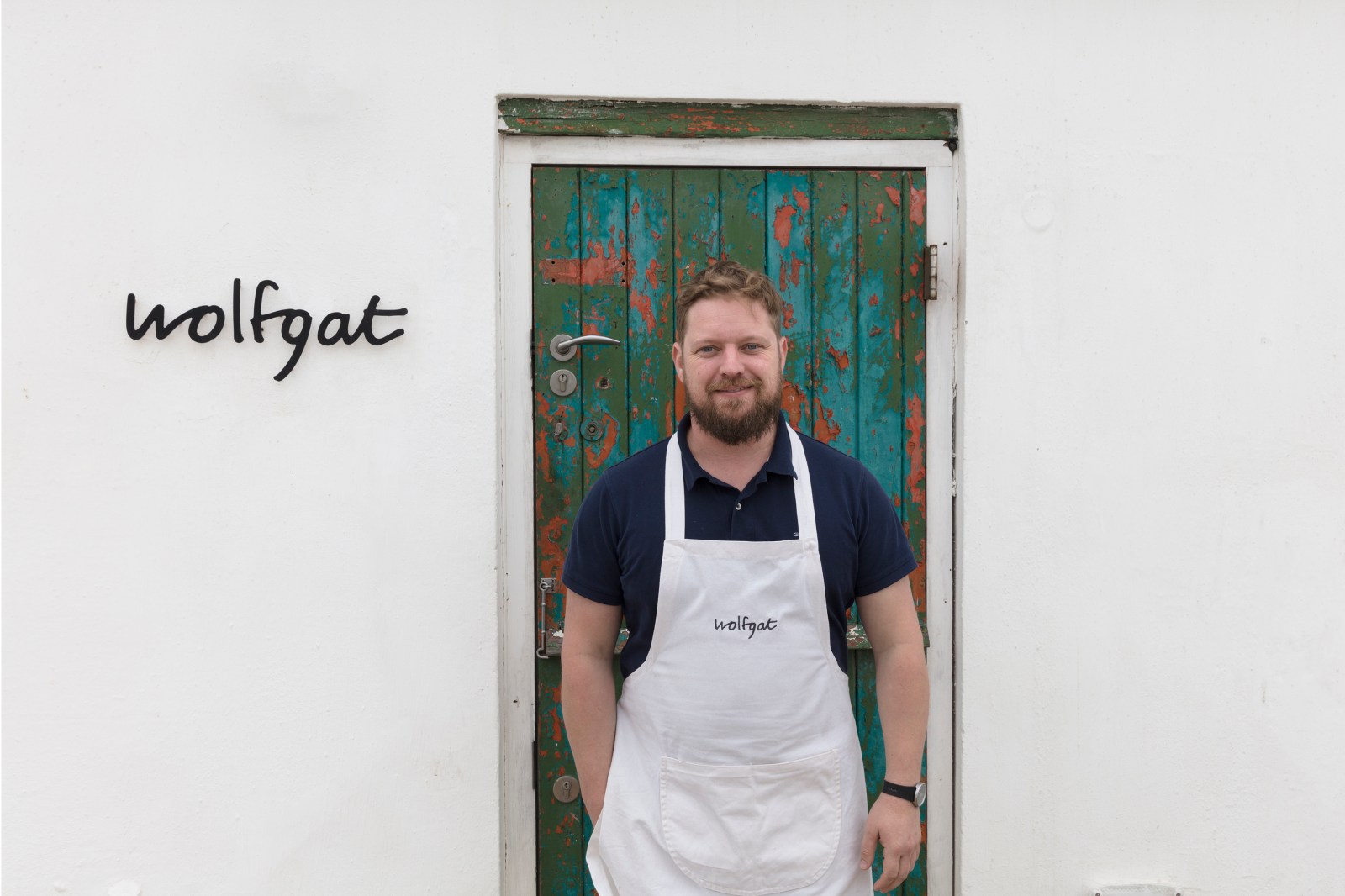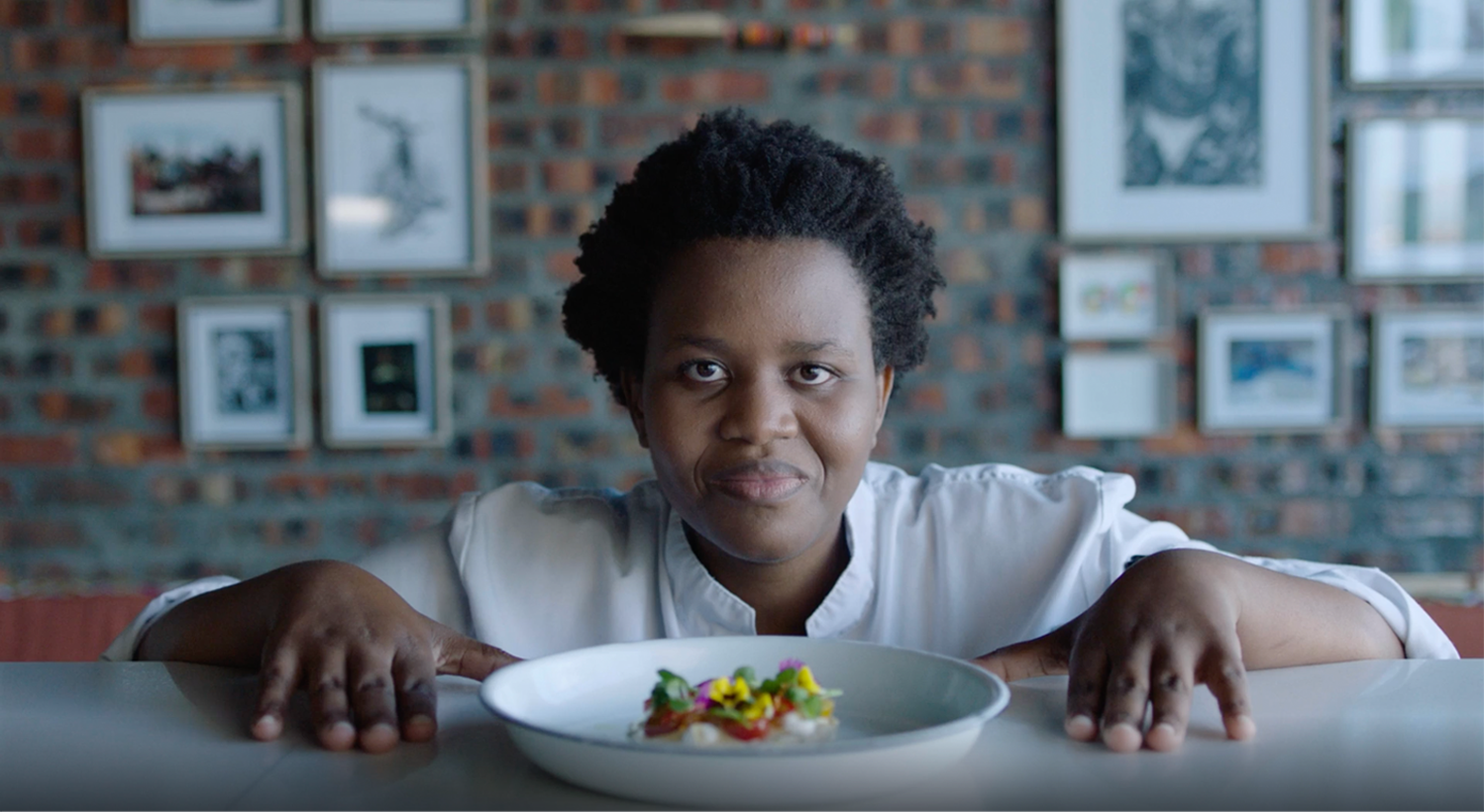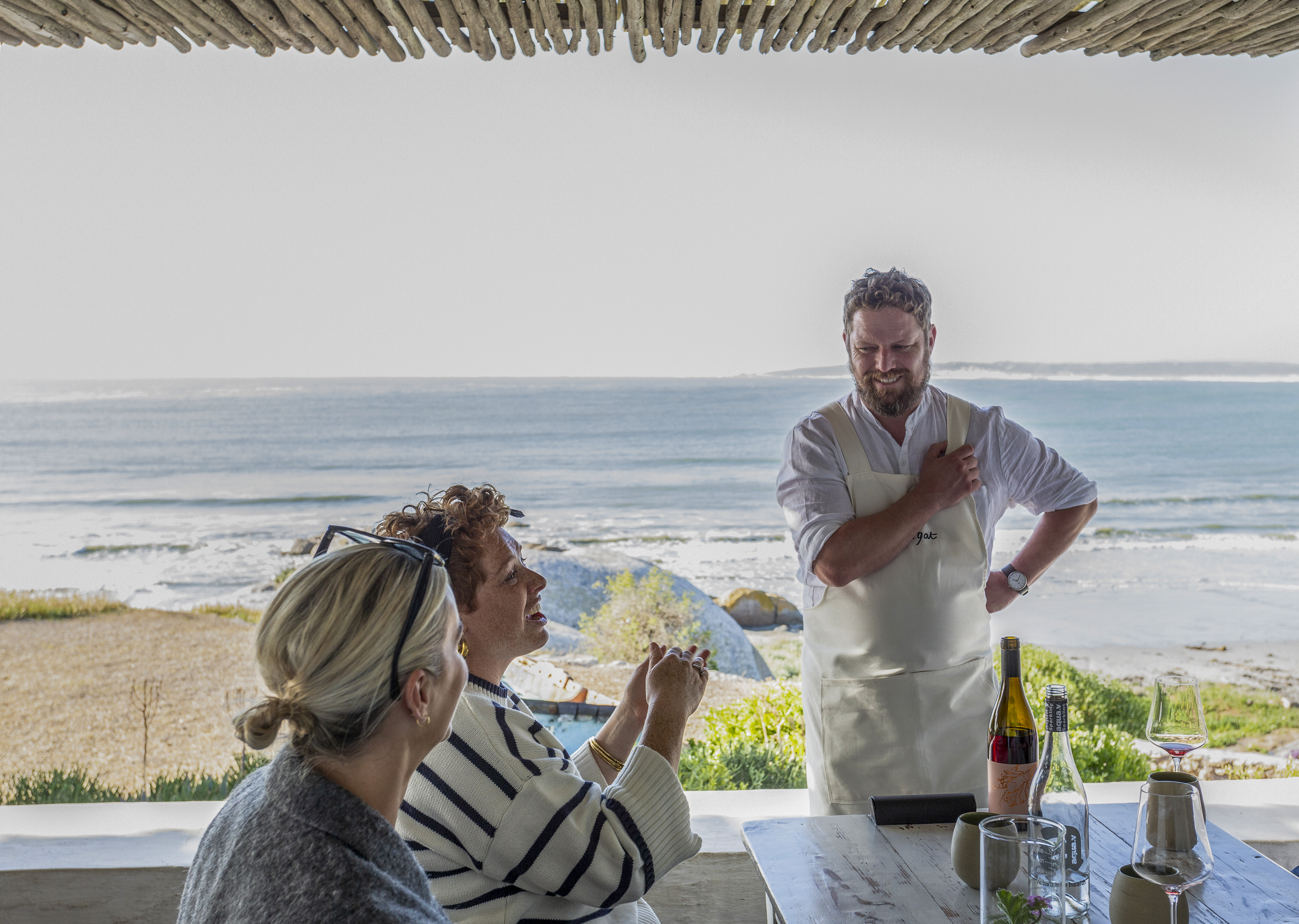Can there ever be such a thing as the best restaurant in the world? Of course not. Because judging any dining experience will always remain incredibly subjective. It can never be a sports-like competition with time tests, or where a combination of physical strength and skill is measured exactly, head to head, or peer against peer.
Yet restaurant awards and best-of lists are everywhere these days. And people love them. There are the famous ones such as Michelin, World’s 50 Best, La Liste and The Culinary Olympics. There are the more obscure ones such as World Culinary Awards, World Luxury Restaurant Awards, Top 100 Restaurants of the World, and The Best Chef... And there are the downright dodgy ones, like the Luxe Global Awards who send emoticon-riddled emails saying they’re “happy to jump on a call” with you. (And to take your money, should you “wish to participate” by buying your way into their guide.)
“Picture what the award (Lady LUXE) would look like in your reception…” reads the Luxe Global Awards’ sales email.
Fifteen minutes of fame
 Kobus van der Merwe and his Wolfgat restaurant in Paternoster became world-famous overnight in 2019. (Photo: Jac de Villiers)
Kobus van der Merwe and his Wolfgat restaurant in Paternoster became world-famous overnight in 2019. (Photo: Jac de Villiers)
In 2019, Wolfgat, my restaurant in Paternoster on the West Coast, was unexpectedly catapulted into our so-called 15 minutes of international fame at the inaugural World Restaurant Awards held in Paris, where we won our category of “off-map destination” for restaurants in far-flung locations.
And out of all the diverse category winners on the night, we were named “Restaurant of the Year”. It was continuously misreported in local and international media as “world’s best restaurant” and “world’s number one restaurant”.
Top. Best. First. Number one. Hyperbole? Most certainly. We have long since realised that these types of accolades need to be taken with large pinches of salt.
Of course, for a tiny, independent restaurant that is not located in a city or major town, without any marketing budget or public relations backup, any motivation for people to travel two hours by car for a meal is welcomed.
How on earth did a small restaurant in Paternoster become discovered by an international panel of judges?
According to the World Restaurant Awards communication at the time, the judging panel consisted of 80 “experts in their field” – 40 women and 40 men, representing all continents – including famous chefs, food writers and sommeliers.
In the year leading up to the awards, each restaurant on the shortlist needed to be visited by at least 12 of these judges, anonymously. This means each restaurant was judged on 12 unannounced visits by international dining experts – certainly no mean feat. This is how a competition creates a standard and builds integrity.
It’s a real pity that subsequent World Restaurant Awards got cancelled by the pandemic and haven’t restarted.
During the campaign leading up to the awards, founder and respected UK-based journalist and food critic, Joe Warwick, was quoted by Fine Dining Lovers as saying: “The World Restaurant Awards will be conducted with complete integrity, total transparency and a real sense of inclusivity.
“We want to make everyone think about the full gamut of the world’s great restaurants – old and new, from luxury destinations to humble institutions – and what makes them so special.”
Integrity, transparency
Integrity and transparency – now those are terms we would assume to be at the core of any respected awards programme.
Locally, we too have a handful of restaurant awards, with Eat Out staking the biggest claim in terms of publicity and reach.
Eat Out makes all the right noises on their website and social media accounts. The judging panel is at last more diverse than it has ever been. They post social media videos of themselves sitting around a table “deliberating”... they get the right sponsors on board and know how to make things look good in a magazine-y way.
The problem comes in with judging inconsistencies and the rigour (or lack thereof) of their judging system (which last year, post-pandemic, again underwent changes). As well as a lack of transparency. And in my opinion the breadth of experience and knowledge of the judges is open to question.
According to the Eat Out website: “Based on their collective experience and expertise, the Eat Out team, the judging panel and the awards’ chief judge [then] select the restaurants to be judged.”
As a newbie restaurant, Wolfgat first entered the Eat Out Mercedes-Benz “Top 20” list in 2017, at number 13. As with the World Restaurant Awards, judging that year was done anonymously. (Although word usually quickly gets out who has been spotted dining where, and information on the suspected judges is quickly shared between restaurants and chefs.)
The next year, from within the industry, there was a huge sigh of relief when it was announced that Margot Janse would become “chief judge” – finally the judging panel would be headed by a seasoned chef, with many international accolades to her name (not least of which, the first female chef to make it onto the World’s 50 Best Restaurants list while helming the kitchen at Le Quartier Francais, in Franschhoek, in 2009).
That year, Wolfgat rose from 13th place on the Eat Out Mercedes-Benz Top 20, to 4th place. We remained in the top five restaurants consistently until 2022.
Similarly, Michelin-starred chef Jan-Hendrik van der Westhuizen was a welcome addition to the judging panel at the first post-pandemic relaunch of the Eat Out awards in 2022, and the first year they changed to a star rating system. Did they drop him this year because of his involvement with Checkers, and Woolworths being the title sponsor?
From Restaurant of the Year to Nowhere
 Johannes Richter and a Belnori goat cheese starter on bespoke plates made from KZN clay, at his LivingRoom at Summerhill in Pinetown, KZN. (Photo: Wanda Hennig)
Johannes Richter and a Belnori goat cheese starter on bespoke plates made from KZN clay, at his LivingRoom at Summerhill in Pinetown, KZN. (Photo: Wanda Hennig)
The morning after the 2023 Eat Out Woolworths Restaurant awards, still upset by the cheek of Eat Out downgrading their own “Restaurant of the Year” from 2022 to a random two-star rating, and fuelled by the massive, heartfelt disappointment expressed by my colleagues Johannes and Johanna Richter on the night, I made an impassioned phone call to chief judge Abigail Donnelly, mostly asking for answers pertaining to The LivingRoom at Summerhill’s unacceptable downgrading.
How can anyone who downgrades their own chosen “Restaurant of the Year”, the very next year, judged on only one visit, be trusted?
In the year following such an accolade, no restaurant would dare to drop their standard. On the contrary.
Scorecard
According to the The Eat Out website, the scorecard is compiled as follows:
- Menu composition: 15 points
- Presentation: 10 points
- Taste and technique: 25 points
- Beverages: 15 points
- Service: 15 points
- Ambience: 5 points
- Perceived value: 10 points
- Brand promise: 5
“Five to 10 factors are rated within these categories before the entire rating is rolled up into the total score out of 100. One star is awarded to those restaurants that scored 70-80, two stars to those scoring 80-90 and three stars to those scoring 90+, with Restaurant of the Year awarded to the establishment with the highest score.”
An embarrassing new category on this year’s scorecard is “brand promise” (5 points) which sounds like something thought up by some or other marketing junior. It’s a minor category, but the concept speaks of tone-deafness on behalf of the team behind these awards.
Do they forget that they are dealing with actual people, and (for the most part) small, independent restaurants?
Wolfgat also dropped out of the three-star category with this year’s awards.
I emailed Abigail Donnelly directly to ask for Wolfgat’s scorecard so that we could do a comparison to previous years, and see where we had dropped points. It resulted in a lengthy email exchange – not with the chief judge herself, nor with members of the judging panel, mind you – but, randomly, with New Media Publishing’s “Head of Owned Brands”, Melissa Cummings.
My numerous email requests for backdated scorecards, which I wanted to see in writing rather than a “face-to-face feedback session” which they kept insisting on, were met with concerning resistance as they do not consider it “standard practice”.
So what if it is not standard practice? It ought to be. Full transparency should be the most basic of expectations for a public awards system that restaurants do not voluntarily enter into.
If they get to judge restaurants and publicly announce results in a big spectacle, being transparent (at the very least with the restaurant directly) as to how those scores were reached is the ethical thing to do.
I also questioned why Wolfgat was only judged on one meal this year when previously we were judged by numerous judges over three or four visits. (It should be concerning to them that we scored higher when visited by multiple judges.)
This judging inconsistency is glaring.
The Richters braved a face-to-face feedback session. For the LivingRoom at Summerhill, the explanation was that on the one visit from chief judge Abigail Donnelly and her colleague, Joseph Dhafana (ex-sommelier of La Colombe, this year’s Eat Out Woolworths Restaurant of the Year), they did not score high enough to merit a subsequent visit from any of the other judges.
Red flag.
Wolfgat too was only visited by Donnelly and Dhafana, in one sitting. Two judges, but one lunch, and essentially one perspective. Neither Herman Lensing, Marisa Munro, Karen Dudley nor Mokgadi Itsweng have ever set foot in Wolfgat.
Major red flag.
From 90.08 to 89.86 we lost a total of 0.22 points this year. The main reasons? Points were subtracted on presentation, not showing variety of technique and they questioned the success of the wine pairing. (This was the first year that Donnelly chose the wine pairing option.)
Donnelly also didn’t like the main course of abalone and mushroom – a single marinated oyster mushroom apparently being the culprit, masking the entire dish as well as its accompanying wine.
On service we were critiqued because I personally served them and therefore they couldn’t gauge the team’s experience.
Did Donnelly bother to notice that our team has remained the same since day one at Wolfgat?
In seven years, would our style or level of service supposedly have changed or dropped so significantly for the worse? And shouldn’t it be celebrated that the chef is there, and so hands-on that he is present at the table?
Since Wolfgat’s inception, it has been the concept that we are a team of all-rounders – there has never been a distinction between front-of-house and kitchen. Everyone who serves is also hands-on with the preparation of the food.
I double up as sommelier – and both judges did the wine pairing that day. Of course, I will then be at the table with each course to present the wine.
Reportedly, for The LivingRoom at Summerhill, the judges’ main concerns were an untidy bathroom and two dishes that were too salty.
Our scores from previous years remain a mystery, since Eat Out communicated that they don’t deem it a necessity to share scorecards with restaurants. However, as they see integrity as a key pillar of the awards, they would make an exception for Wolfgat. But they continued to backpedal, reminding me that since they moved from a top 20 ranking to a star rating system in December 2021, all previous scorecards are obsolete, and they will only supply scorecards from 2022 and 2023 for comparison.
If they are publicly, self-appointedly handing out stars based on a points system, why are they so reluctant to share how these points were allocated?
If their process is honest, just and thorough, they should be willing to share their scorecards publicly. Secrecy and protectiveness imply dishonesty and bias.
Eat Out’s handling of my request for full transparency speaks of corporate imperviousness with nothing but their magazine brand in mind and their title sponsor to please.
Did all restaurants this year receive only one visit from a pair of judges?
If so, it’s curious how their judging panel can make informed and accurate decisions when “deliberating” as a group if they did not share the same restaurant experiences. What is being compared to what? And how can scoring then be considered equitable? It brings the integrity of the awards into question.
Celebrating South Africanism
Glancing back at previous years’ top-awarded restaurants, it seems Eat Out sadly continues to prefer mostly awarding exoticism and generic luxury instead of celebrating local restaurants that truly offer uniquely South African dining experiences.
When Summerhill was announced as Restaurant of the Year in 2022, I thought, Eat Out finally got it! They awarded a small, independent, family-run restaurant that celebrates hyper-local ingredients, makes heroes of seasonality and sustainability, and sits sensitively within their community.
One year later we seem to have regressed at least a decade, with the Restaurant of the Year title again awarding generic luxury with international appeal – and no real South African identity or genius loci to speak of.
A quote from Alex Atala in his speech at the 2013 Design Indaba in Cape Town comes to mind. Speaking of his Amazonian cuisine receiving international acclaim, he said: “The only way to go global, is to go local.”
I’m also shocked at Eat Out’s short memory.
Where is last year’s rising star winner, Mmabatho Molefe and her brilliant Emazulwini, on this year’s list? Are they one year later not even worthy of a single star?
 Mmabatho Molefe at her restaurant, Emazulwini. (Photo: Supplied)
Mmabatho Molefe at her restaurant, Emazulwini. (Photo: Supplied)
Accountability
Eat Out, in a self-congratulatory online article published in 2023, gushes at its own “shaping of SA’s restaurant landscape”. The self-importance is quite staggering.
I keep reminding myself that Eat Out, as a restaurant judging body, is completely self-appointed. Neither they nor any of the international awards can exist without us, the restaurants.
They should celebrate us and support us. They should proudly award South Africanism. Their decisions have an impact on people’s lives and livelihoods.
They do not shape the restaurant landscape, but they do have the ability to shape the dining public’s opinion. They therefore work for us. And we should hold them accountable.
For too long we’ve been accepting these awards without question. It’s time for change. It’s time to start scrutinising and asking questions.
Should WE not be appointing the judges, instead of bowing to publishing companies and their corporate sponsors?
It can also only strengthen their standing in the industry.
It will certainly garner more respect from within the chefs’ community, as well as underscore the awards’ overall reputation, if they put their annual (sponsored) awards party budget to better use and rather invest it in establishing a more rigorous, fair and transparent judging process that celebrates our country and our continent and its diverse and distinct restaurant culture. DM
Kobus van der Merwe is chef-owner of Wolfgat Restaurant in Paternoster, awarded ‘Restaurant of the Year’ at the inaugural World Restaurant Awards in 2019. He has previously received the ‘Chef of the Year’ and ‘Chefs Chef of the Year’ accolades at the Eat Out Awards. In a previous life, he worked as web editor for a fledgling Eat Out magazine.
TGIFood will welcome and publish a response from Eat Out or its editor Abigail Donnelly, should they wish to do so.




 Mmabatho Molefe at her restaurant, Emazulwini. (Photo: Supplied)
Mmabatho Molefe at her restaurant, Emazulwini. (Photo: Supplied)
